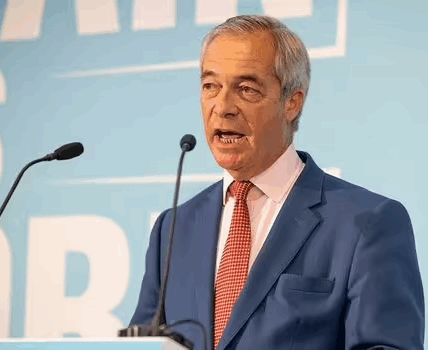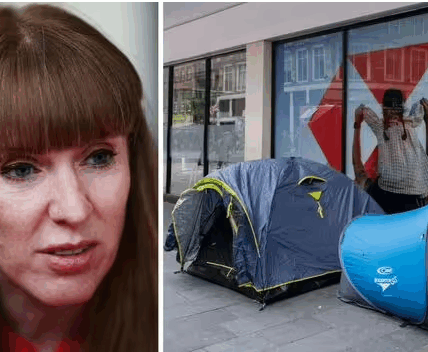Employers lay the blame squarely on Rachel Reeves but warn threatened Budget tax rises, and Labour’s new employment laws, will make job cuts even worse

Chancellor Rachel Reeves, front, with Cabinet colleagues (Image: Getty Images)
Embattled Chancellor Rachel Reeves has been accused of destroying jobs after unemployment rose by more than 230,000 since Labour came to power. It places her in a nightmare position because it looks almost certain she will be forced to raise taxes in her November 26 Budget to plug a huge shortfall in the public finances – but this will hurt the economy even more.
Campaigners warned that young people are particularly hard hit, with many moving on to benefits just when they should be starting a career. And employers warned there is worse to come as Labour’s new workers’ rights legislation threatens massive job cuts in the retail sector. Today’s figures show 1.674 million people aged 16 and over are unemployed. This is up from 1.44 million compared to figures for the period covering last July’s general election, a rise of 234,000.
At the same time, the number of payrolled employees was 30.3 million, which is a fall of 0.4% from August 2024 – the equivalent to 127,000 fewer employees.
Employers are clear that jobs have been lost because of Ms Reeves’s decisions in last year’s Budget to increase National Insurance and the minimum wage.
Jane Gratton, Deputy Director of Public Policy at the British Chambers of Commerce said: “The ongoing impact of business cost pressures, most notably from the national insurance hike, continues to hit the labour market.
“Unemployment remains high and vacancies continue to fall with firms having to make difficult decisions on recruitment.”
Helen Whately, Shadow Work and Pensions Secretary, said: “Today’s figures confirm what the country already knows – under this Labour Government, opportunity is shrinking, and the economy is paying the price.
“The Conservatives left office with unemployment near record low and the fastest-growing economy in the G7. In just over a year, Labour has overseen decline in our economy, deterioration in our public services, and a collapse in trust.”
But she warned further tax rises in the November 26 Budget would make the economic situation even worse.
“With families already struggling, the country is braced for Rachel Reeves’ impending tax rises, making it even harder for people to get by and for businesses to employ.”
Analysis by think tank the Centre for Social Justice found people under the age of 25 were particularly affected, with 51,000 fewer under-25s in payrolled work in August 2025 compared to April 2025.
Ben Gregg, Senior Researcher at the Centre for Social Justice said: “Young people are facing a toxic cocktail of rising employment costs and an influx of lower skilled migration into entry-level jobs. Many are turning to a life on mental health benefits as a result.
“The Government’s vow to get young people off benefits and into work is welcome, but these figures show how urgently they need to turn words into action.”
Employers said that the Government’s Employment Rights Bill, expected to pass into law soon, will make the situation even more dire.
Helen Dickinson, Chief Executive at the British Retail Consortium, said: “Today’s figures are a stark warning: retail jobs have plunged to a record low with 97,000 jobs lost over the last year, and almost 400,000 lost over the last decade.
“The rising cost of National Insurance contributions and the National Living Wage, together costing the industry over £5 billion this year, are hitting retail employment hard. And worse could be yet to come, with the Employment Rights Bill having a ‘materially negative impact on employment’ according to the OBR, and the threat of further cost rises at the Autumn Budget looming large.
“As costs mount on the industry, retail jobs are falling by the wayside. Whether it is the additional complexity wrought by the Employment Rights Bill, or a new surtax on large retail premises, the impact of these policies will be to drive up prices and hold back retail employment. It vital that the Chancellor’s Autumn Budget does not increase costs to the high street further, or else it will be working people who will pay the price as local, flexible jobs are lost, and the cost of living continues to rise.”
The Employment Rights Bill had been championed by former Deputy Prime Minister Angela Rayner, who called it “the biggest upgrade to workers’ rights in a generation”. But an impact assessment produced by the Government warned it would impose direct costs on business of up to £5billion. Firms might simply absorb this in the form of lower profits, but it could also lead to higher prices, lower wages or fewer jobs, the analysis warned.
The new law will make it easier for unions to hold strike action and give workers more rights from day one in the job.
Work and Pensions Secretary Pat McFadden said there were bright spots in the latest jobs market data. He said: “Today’s figures show signs of progress with economic inactivity and redundancies continuing to fall.
“But we must futureproof our workforce by giving people the opportunities and skills they need to secure the jobs of tomorrow.
“It is vital that our £240 million Get Britain Working plan is felt by people across the country, whether it’s through targeted support for young people entering the workforce, or joining up work, health and skills support.
“The true strength of the UK’s economy lies in the British people, which is why we are unlocking opportunity in every part of the country to drive forward economic growth under our plan for change.”

